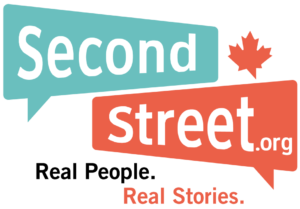FINANCIAL POST COLUMN: Post-Pandemic Policy By The eBook

Quebecers have just regained the right to go for a walk at night without being accompanied by a dog. Albertans will soon be able to sit on restaurant patios with their friends and family. Ontario is even letting people — gasp! — golf again.
Canada appears to be finally emerging from the pandemic. While we’re all planning on celebrations in the months ahead, our elected officials shouldn’t set aside too much time for festivities. Canada faces some very serious issues in our new post-pandemic world.
Five organizations involved in public policy in Canada recently came together to create a free ebook — Life After COVID — to highlight some of those major issues. Most importantly, our ebook doesn’t just outline problems; it proposes more than 30 potential policy solutions.
For starters, Canadians should know that our nation’s federal debt has passed a staggering $1 trillion and will continue to rise in the years ahead. Divide that among 38 million of us and your share works out to nearly $29,000. But Ottawa isn’t the only government loading up its credit card. Provincial governments have also been busy incurring debt. In fact, Newfoundland and Labrador is on the brink of insolvency.
To understand how government debt affects you, think of the tried-and-true advice “if it sounds too good to be true, it probably is.” Rising government debt ultimately means higher tax rates, inflation and bigger interest charges for governments, which means fewer dollars for services citizens care about.
Fortunately, there are many ways governments could curtail their expenditures without taxpayers noticing a decrease in the services they consider most important. Reducing pay for federal employees, scaling back their generous pensions and curbing discretionary expenditures are just a few measures the Canadian Taxpayers Federation proposes.
Health care is another major problem area for governments. Before the pandemic, Canada faced an enormous cash crunch due to our nation’s aging population. Retired people tend to earn less, pay less in taxes and require more costly health care procedures. That’s not a slight on older Canadians, it’s just a fact of life.
The problem is that governments have not saved enough to pay for the wave of baby boomers as they age. The oldest of the boomers turn 75 this year and people in the 75-79 age bracket cost the health care system three times more, on average, than those 50-54 years old. The pandemic has only made things worse. After COVID emerged, governments postponed upwards of 400,000 surgeries and procedures nation-wide. Canada’s already long waiting lists have gotten even longer.
The Montreal Economic Institute proposes several common-sense policy solutions to improve health care for patients — for example, allowing pharmacists and nurses to provide a wider array of health services. This could save the system large sums of money as it becomes less dependent on higher-cost doctors to handle the tasks in question.
Similarly, allowing Canadians something the rest of the developed world enjoys — a choice between public and non-government providers — could take pressure off the public system as some patients decide to pay out-of-pocket for private care.
Canada’s high unemployment rate is another problem that deserves attention. The federal government has promised to borrow $101 billion and spend the money to “create jobs” and get the economy going. But instead of governments giving businesses billions of our tax dollars, it could create thousands of jobs by simply getting out of the way. Cutting red tape, tearing down interprovincial trade barriers and making it easier for natural resource projects to proceed could create more jobs than the government’s stimulus plan. As SecondStreet.org research has shown, between 2014 and 2020, the value of major mining and oil and gas projects delayed or obstructed by government policies was in excess of $200 billion.
These are just a few potential solutions to the challenges facing Canada. As much as our politicians want to celebrate finally getting COVID under control, for the sake of everyday Canadians, the celebration shouldn’t last too long. There’s lots of work to be done.
Colin Craig is president of SecondStreet.org and contributed a chapter to Life After COVID. The Montreal Economic Institute, Canadian Constitution Foundation, Canadian Taxpayers Federation and Justice Centre for Constitutional Freedoms were other partners in the policy ebook project.
This column was published in The Financial Post on June 1st, 2021. To see article click here.
You can help us continue to research and tell stories about this issue by making a donation or sharing this content with your friends. Be sure to sign up for our updates too!


